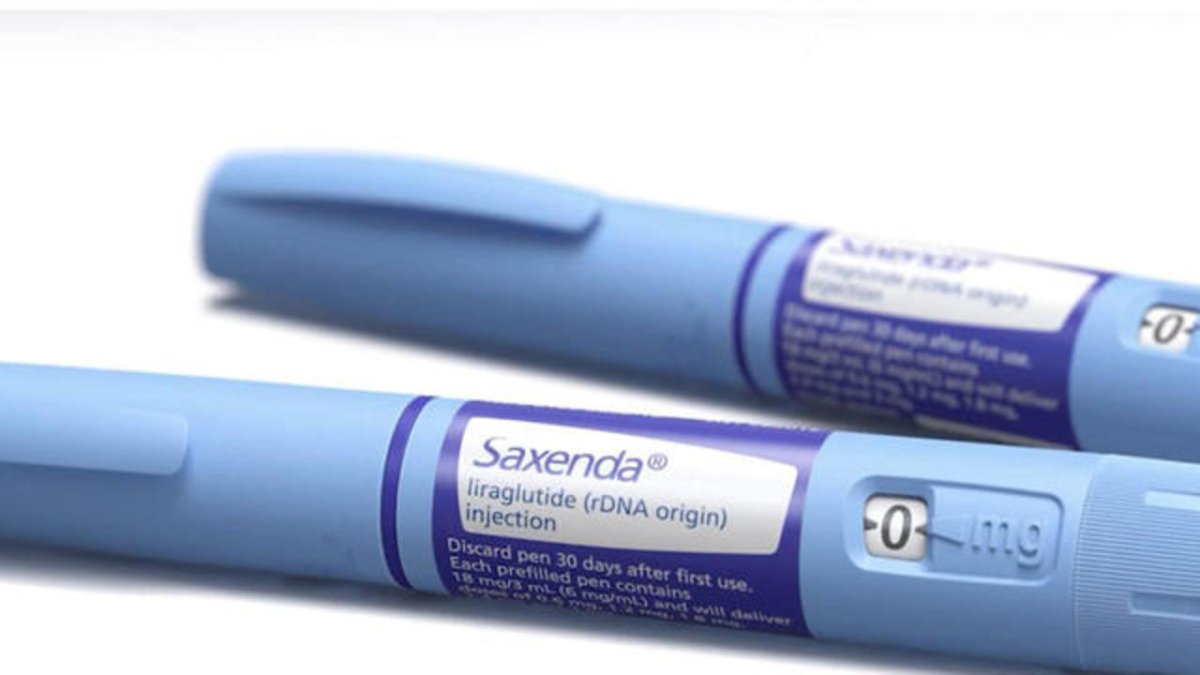The Role of Diabetes Medication in Weight Loss
If you have been diagnosed with diabetes and are struggling with your weight, you may be curious about the role that diabetes medication plays in weight loss. Managing both diabetes and weight can be a challenging task, but understanding the potential impact of certain medications can offer hope and support on your weight loss journey.
In this article, we will explore how diabetes medication can aid in weight loss, highlighting the various medications commonly prescribed for this purpose and discussing their potential benefits. By gaining insight into the role of diabetes medication in weight loss, you can make informed decisions about your treatment plan and work towards achieving a healthier weight.
Understanding Diabetes Medication
When it comes to managing diabetes, medication plays a crucial role in controlling blood sugar levels and preventing complications. There are several types of diabetes medications available, each with its own mechanism of action and benefits. Understanding how these medications work can help you make informed decisions about your diabetes management.
Types of Diabetes Medication
There are different classes of diabetes medication, each designed to target specific aspects of blood sugar regulation. Some of the commonly prescribed medications include:
- Metformin: This oral medication works by reducing the amount of glucose produced by the liver and improving insulin sensitivity in the body.
- GLP-1 receptor agonists: These medications stimulate the release of insulin from the pancreas and decrease the production of glucose by the liver.
- SGLT2 inhibitors: These drugs work by increasing the excretion of glucose in the urine, thus lowering blood sugar levels.
- Combination medications: Some individuals may require a combination of different medications to effectively manage their diabetes.
Mechanism of Action
Each type of diabetes medication works through a specific mechanism of action to control blood sugar levels. Metformin, for example, reduces glucose production in the liver and enhances insulin sensitivity. GLP-1 receptor agonists stimulate the release of insulin and inhibit glucagon secretion, resulting in lower blood glucose levels. SGLT2 inhibitors prevent the reabsorption of glucose by the kidneys, leading to increased urinary glucose excretion. Combination medications combine the effects of different classes of drugs to provide comprehensive control over blood sugar levels.
Benefits of Diabetes Medication
Diabetes medication offers a wide range of benefits for individuals with diabetes. Firstly, it helps to lower blood sugar levels, which is crucial for preventing complications such as kidney damage, nerve damage, and cardiovascular problems. By controlling blood sugar levels, diabetes medication also reduces the risk of hyperglycemia and hypoglycemia, both of which can have serious consequences. Additionally, some diabetes medications have been shown to promote weight loss, which can be beneficial for individuals who are overweight or obese. Overall, these medications play a vital role in effectively managing diabetes and improving overall health.

Weight Loss and Diabetes
Weight management is an important aspect of diabetes care, as excess weight can worsen insulin resistance and increase the risk of complications. The connection between weight and diabetes is well-established, and losing weight can significantly improve blood sugar control in individuals with diabetes. However, weight loss can be challenging for people with diabetes, and this is where medication can play a valuable role.
The Connection between Weight and Diabetes
Being overweight or obese increases the risk of developing type 2 diabetes, as excess weight can impair insulin function and lead to insulin resistance. Insulin resistance, in turn, makes it more difficult for cells to take up glucose from the bloodstream, resulting in elevated blood sugar levels. Losing weight can help improve insulin sensitivity and reduce the demand on the body's insulin-producing cells. This can result in better blood sugar control and a reduced need for diabetes medication.
Challenges of Weight Loss in Diabetes Patients
Weight loss can be particularly challenging for individuals with diabetes. The presence of insulin resistance can make it harder to burn fat and lose weight. Moreover, some diabetes medications, such as insulin or sulfonylureas, can promote weight gain, further complicating the weight loss journey. Additionally, fluctuations in blood sugar levels can lead to intense hunger and cravings, making it difficult to adhere to a calorie-restricted diet.
Role of Medication in Weight Loss
Incorporating medication into a weight loss plan can be beneficial for individuals with diabetes who are struggling to shed excess pounds. Certain types of diabetes medications have been shown to promote weight loss as a side effect. These medications can help to suppress appetite, increase feelings of fullness, and improve metabolism, making it easier to achieve and maintain weight loss goals. By combining medication with lifestyle modifications, individuals with diabetes can enhance their weight loss efforts and improve overall health outcomes.
Medications for Weight Loss in Diabetes
Several diabetes medications have been found to aid in weight loss, providing a valuable tool for individuals looking to achieve a healthy weight. These medications work through various mechanisms to promote weight loss while helping to control blood sugar levels.
Metformin
Metformin, a commonly prescribed oral medication, has been shown to contribute to modest weight loss in individuals with diabetes. Its primary mechanism of action involves reducing the production of glucose by the liver and improving insulin sensitivity. By decreasing the amount of glucose available in the bloodstream, metformin encourages the body to utilize stored fat for energy, resulting in weight loss.
GLP-1 Receptor Agonists
GLP-1 receptor agonists, such as liraglutide and exenatide, are injectable medications that mimic the effects of the hormone GLP-1. These medications stimulate insulin release, suppress glucagon secretion, and slow down gastric emptying. As a result, they help to regulate blood sugar levels and promote weight loss. GLP-1 receptor agonists have been shown to reduce body weight by suppressing appetite, leading to decreased calorie intake and subsequent weight loss.
SGLT2 Inhibitors
SGLT2 inhibitors, such as dapagliflozin and empagliflozin, are oral medications that work by blocking the reabsorption of glucose by the kidneys. This leads to increased urinary excretion of glucose, which in turn lowers blood sugar levels. SGLT2 inhibitors have also been found to promote weight loss. The increased excretion of glucose through the urine results in a calorie deficit, leading to weight loss over time.
Combination Medications
In some cases, combination medications may be prescribed to individuals with diabetes who require additional support for weight loss. Combination medications usually contain two or more drugs from different classes, such as a GLP-1 receptor agonist and an SGLT2 inhibitor. These medications provide the benefits of both classes of drugs, effectively lowering blood sugar levels while promoting weight loss. Combining medications in this way can enhance the weight loss potential and help individuals with diabetes to achieve their weight management goals.
Metformin and Weight Loss
Metformin is often the first-line medication prescribed for individuals with type 2 diabetes. Along with its efficacy in controlling blood sugar levels, metformin has been associated with modest weight loss in some individuals.
Mechanism of Action
Metformin works by reducing the amount of glucose produced by the liver and improving insulin sensitivity in the body. By lowering glucose production and increasing the uptake of glucose by cells, metformin helps to regulate blood sugar levels. This mechanism indirectly contributes to weight loss by reducing the availability of glucose for energy and encouraging the body to burn stored fat instead.
Research and Evidence
Numerous studies have investigated the effects of metformin on weight loss in individuals with diabetes. While the weight loss observed with metformin is generally modest, it can still be clinically significant. One study found that metformin treatment resulted in an average weight loss of 1-2 kilograms over six months in individuals with type 2 diabetes.
Considerations for Use
Metformin is well-tolerated for most individuals and is generally considered safe. However, some individuals may experience gastrointestinal side effects, such as nausea, diarrhea, or stomach upset, when first starting the medication. These side effects usually subside over time. It's important to discuss any concerns or potential side effects with your healthcare provider before starting metformin.
GLP-1 Receptor Agonists and Weight Loss
GLP-1 receptor agonists are a class of medications that have gained attention for their dual action in controlling blood sugar levels and promoting weight loss in individuals with diabetes.
Mechanism of Action
GLP-1 receptor agonists work by mimicking the function of the hormone GLP-1, which is released in response to food consumption. This hormone stimulates insulin release from the pancreas, suppresses glucagon secretion, slows down gastric emptying, and promotes feelings of fullness. By activating GLP-1 receptors, these medications help regulate blood sugar levels, decrease appetite, and increase satiety, leading to weight loss.
Research and Evidence
Numerous studies have demonstrated the effectiveness of GLP-1 receptor agonists in promoting weight loss in individuals with diabetes. In clinical trials, patients treated with GLP-1 receptor agonists experienced significant weight loss compared to those on placebo or other diabetes medications. The amount of weight loss varies between individuals but can range from 2-6% of initial body weight.
Considerations for Use
GLP-1 receptor agonists are typically administered as injections, either once daily or once weekly depending on the specific medication. Common side effects include nausea, vomiting, and diarrhea, but these usually improve over time. Prior to starting GLP-1 receptor agonists, it's important to discuss any potential side effects or concerns with your healthcare provider to ensure this medication is appropriate for you.
SGLT2 Inhibitors and Weight Loss
SGLT2 inhibitors are a class of diabetes medications that have been found to promote weight loss in individuals with type 2 diabetes.
Mechanism of Action
SGLT2 inhibitors work by blocking the reabsorption of glucose in the kidneys, resulting in increased urinary excretion of glucose. By preventing glucose from being reabsorbed back into the bloodstream, these medications lower blood sugar levels. This increased excretion of glucose also leads to a calorie deficit, as the body is essentially losing glucose (and therefore calories) through urine. The calorie deficit promotes weight loss over time.
Research and Evidence
Clinical trials have consistently shown that SGLT2 inhibitors are associated with weight loss in individuals with type 2 diabetes. Studies have demonstrated an average weight loss of 2-4 kilograms over a period of 6-12 months with SGLT2 inhibitor use. The weight loss observed with SGLT2 inhibitors may be attributed to the urinary excretion of glucose, reduction in calorie intake, and mild diuretic effect.
Considerations for Use
SGLT2 inhibitors are typically taken orally and are generally well-tolerated. However, it's important to note that these medications can cause increased urination and an increased risk of urinary tract infections. Additionally, individuals taking SGLT2 inhibitors may require closer monitoring of kidney function. Consulting with your healthcare provider is essential to determine if SGLT2 inhibitors are suitable for you and to ensure appropriate monitoring of potential side effects.
Combination Medications and Weight Loss
For individuals with diabetes who require additional support for weight loss, combination medications may be an option to consider.
Types of Combination Medications
Combination medications for weight loss in diabetes usually consist of two different classes of drugs that work synergistically to control blood sugar levels and promote weight loss. For example, a combination medication may include a GLP-1 receptor agonist and an SGLT2 inhibitor. These medications provide the benefits of both classes of drugs, effectively lowering blood sugar levels and enhancing weight loss.
Mechanism of Action
The mechanism of action of combination medications will depend on the specific classes of drugs included. The various medications work together to target multiple pathways involved in blood sugar regulation and weight loss. By combining different medications, it's possible to achieve a more potent and comprehensive effect.
Research and Evidence
Limited research has been conducted specifically on combination medications for weight loss in diabetes. However, studies have demonstrated that combining certain classes of drugs, such as GLP-1 receptor agonists and SGLT2 inhibitors, can produce greater weight loss compared to individual medications alone. Some combination medications have also shown improved blood sugar control compared to monotherapy.
Considerations for Use
The use of combination medications for weight loss in diabetes should be determined on an individual basis in consultation with a healthcare provider. Each combination medication may have unique considerations and potential side effects, so it's important to discuss these with your healthcare provider before starting any new medication.
Factors Affecting Weight Loss with Diabetes Medication
Several factors can influence the extent of weight loss experienced with diabetes medication. It's important to consider these factors to optimize the effectiveness of weight loss interventions.
Individual Variations
Each person's response to diabetes medication can vary. Factors such as genetics, metabolism, lifestyle, and underlying health conditions can all influence how an individual responds to weight loss interventions. It's essential to work closely with a healthcare provider to personalize diabetes medication and weight loss strategies to your specific needs.
Lifestyle Modifications
While medication can aid in weight loss, it's important to combine it with lifestyle modifications for optimal results. Making healthy dietary choices, engaging in regular exercise, and adopting behavior changes are all integral parts of a successful weight loss journey. Diabetes medication can provide support and assist with weight loss, but it should be seen as part of a comprehensive approach that includes lifestyle modifications.
Dietary Changes
Diet plays a pivotal role in weight loss, and making appropriate dietary changes can enhance the effects of diabetes medication. It's important to focus on a balanced, nutrient-rich diet that emphasizes whole foods such as fruits, vegetables, lean proteins, whole grains, and healthy fats. Limiting processed foods, sugary beverages, and excessive calorie intake can further support weight loss efforts while taking diabetes medication.
Exercise
Regular physical activity is crucial for weight loss and overall health in individuals with diabetes. Exercise helps to burn calories, improve insulin sensitivity, and build lean muscle mass. Combining diabetes medication with an exercise routine can lead to more significant weight loss and better blood sugar control. It's recommended to consult with a healthcare provider or a certified exercise professional to develop an exercise plan that suits your individual needs and capabilities.
Guidelines and Recommendations
Various medical guidelines and recommendations exist to guide healthcare providers in managing weight loss in individuals with diabetes. These guidelines provide evidence-based recommendations and serve as valuable resources for healthcare professionals and individuals seeking to manage their weight effectively.
Medical Guidelines for Weight Loss with Diabetes Medication
Medical societies and organizations, such as the American Diabetes Association (ADA) and the European Association for the Study of Diabetes (EASD), have published guidelines that provide recommendations for healthcare providers in managing weight loss with diabetes medication. These guidelines outline the preferred medications, treatment strategies, and goals for weight management in individuals with diabetes.
Healthcare Provider Recommendations
It's important to consult with a healthcare provider who can provide personalized recommendations based on your individual needs and health status. Healthcare providers have the expertise and knowledge to guide you through the process of managing weight loss with diabetes medication. They can take into account factors such as your medical history, current medication regimen, and lifestyle to develop a tailored treatment plan that suits your specific goals.
Monitoring and Follow-up
Regular monitoring and follow-up with a healthcare provider are crucial throughout the weight loss journey with diabetes medication. Diabetes medication dosages may need to be adjusted based on changes in weight and blood sugar control. Additionally, a healthcare provider can offer ongoing support, guidance, and accountability to help you stay on track and successfully manage your weight.
Considerations and Potential Side Effects
While diabetes medication can be highly beneficial for weight loss, it's important to be aware of potential considerations and side effects.
Hypoglycemia
Certain diabetes medications, such as insulin and sulfonylureas, carry a risk of hypoglycemia (low blood sugar). Hypoglycemia can occur when blood sugar levels drop too low, leading to symptoms such as weakness, dizziness, confusion, and sweating. It's important to closely monitor blood sugar levels and adjust diabetes medication dosages as needed to minimize the risk of hypoglycemia.
Gastrointestinal Side Effects
Some diabetes medications, particularly GLP-1 receptor agonists, can cause gastrointestinal side effects such as nausea, vomiting, and diarrhea. These side effects are usually temporary and improve over time. If the side effects become severe or persistent, it's important to consult with a healthcare provider.
Drug Interactions
It's important to be aware of potential drug interactions when taking diabetes medication for weight loss, especially if you are taking other medications or have other medical conditions. Some medications may interact with diabetes medication and affect its efficacy or increase the risk of side effects. Be sure to inform your healthcare provider of all medications, supplements, and medical conditions you have to ensure there are no potential interactions.
Allergies
Allergic reactions to medications are rare but can occur. If you experience symptoms such as rash, itching, swelling, or difficulty breathing after taking diabetes medication, seek immediate medical attention. It's essential to follow up with your healthcare provider and discontinue the medication if an allergic reaction is suspected.
In conclusion, diabetes medication can play a significant role in weight loss for individuals with diabetes. Different classes of medications offer various mechanisms of action and benefits. Metformin, GLP-1 receptor agonists, SGLT2 inhibitors, and combination medications have all been found to promote weight loss in individuals with diabetes. Factors such as individual variations, lifestyle modifications, dietary changes, and exercise can influence the effectiveness of weight loss interventions. Following medical guidelines and recommendations, seeking healthcare provider recommendations, and maintaining regular monitoring and follow-up are important for successful weight management. It's important to be aware of potential side effects and considerations, such as hypoglycemia, gastrointestinal side effects, drug interactions, and allergies. By working closely with a healthcare provider and incorporating medication into a comprehensive approach to weight loss, individuals with diabetes can achieve their weight management goals and improve their overall health.






